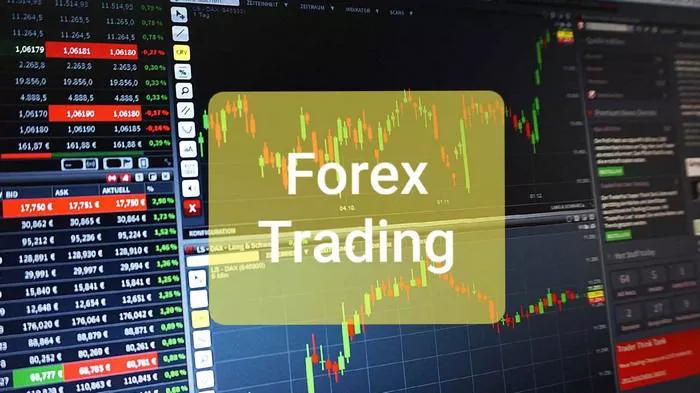Currency values play a significant role in international trade and investment. For investors, travelers, and economists, understanding which currencies hold the highest value is essential. In this article, we will explore the currency with the highest value globally, delve into the factors that contribute to its strength, and examine how currency values impact the global economy.
Introduction to Currency Value
Currencies are the backbone of the global financial system. They facilitate trade, investment, and economic stability. The value of a currency is determined by various factors, including economic performance, political stability, and market demand. A higher currency value often indicates a strong economy and can influence international business decisions.
What Determines Currency Value?
Several factors affect a currency’s value:
Economic Indicators: Inflation rates, interest rates, and gross domestic product (GDP) growth can strengthen or weaken a currency.
Political Stability: Countries with stable governments attract more foreign investment, boosting currency value.
Market Speculation: Traders’ perceptions and speculative activities can impact currency exchange rates.
Supply and Demand: Higher demand for a currency increases its value, while an oversupply can decrease it.
The Kuwaiti Dinar: The Highest-Valued Currency
As of October 2023, the Kuwaiti Dinar (KWD) holds the title of the highest-valued currency in the world. The Kuwaiti Dinar is the official currency of Kuwait, a small nation located in the Arabian Peninsula.
Historical Background of the Kuwaiti Dinar
Introduced in 1960 to replace the Gulf Rupee, the Kuwaiti Dinar has maintained a strong position due to Kuwait’s robust economy. The country has one of the highest per capita incomes globally, driven primarily by its substantial oil reserves.
Exchange Rate of the Kuwaiti Dinar
The exchange rate of the Kuwaiti Dinar is impressive. As of October 2023:
1 Kuwaiti Dinar (KWD) ≈ 3.30 US Dollars (USD)
1 Kuwaiti Dinar (KWD) ≈ 2.80 Euros (EUR)
This means that one Kuwaiti Dinar can be exchanged for approximately 3.30 US Dollars, making it the most valuable currency by face value.
Factors Contributing to the Kuwaiti Dinar’s High Value
Several key factors contribute to the strength of the Kuwaiti Dinar.
Oil Wealth and Economic Stability
Kuwait possesses about 8% of the world’s oil reserves. The export of oil accounts for a significant portion of the country’s GDP and government revenue. This wealth allows Kuwait to maintain a stable and strong currency.
Fixed Exchange Rate Policy
The Kuwaiti Dinar is pegged to a basket of currencies, which helps stabilize its value against major world currencies. This policy reduces volatility and maintains investor confidence.
Low Inflation Rates
Kuwait has historically maintained low inflation rates. Controlled inflation preserves the purchasing power of the currency, contributing to its high value.
Sovereign Wealth Fund
Kuwait’s Sovereign Wealth Fund, the Kuwait Investment Authority (KIA), is one of the oldest and largest globally. It manages the country’s surplus oil revenue, investing in assets worldwide, which further strengthens the economy and the currency.
Other High-Valued Currencies
While the Kuwaiti Dinar tops the list, other currencies also have high values compared to the US Dollar.
Bahraini Dinar (BHD)
1 Bahraini Dinar ≈ 2.65 US Dollars
The Bahraini Dinar is the second highest-valued currency. Bahrain’s economy, like Kuwait’s, is heavily reliant on oil and gas exports.
Omani Rial (OMR)
1 Omani Rial ≈ 2.60 US Dollars
The Omani Rial is also pegged to the US Dollar and benefits from Oman’s oil-driven economy.
Jordanian Dinar (JOD)
1 Jordanian Dinar ≈ 1.41 US Dollars
Despite not being a major oil producer, Jordan maintains a strong currency through careful monetary policy and foreign aid.
Impact of High Currency Value
A high currency value has both advantages and disadvantages for a country’s economy.
Advantages
- Increased Purchasing Power: Citizens can buy imported goods and services at lower prices.
- International Investment: A strong currency can attract foreign investors seeking stable investments.
- Economic Influence: It enhances the country’s economic stature on the global stage.
Disadvantages
Export Challenges: Domestic goods become more expensive for foreign buyers, potentially reducing export volumes.
Tourism Impact: A strong currency can make the country a costly destination for tourists, affecting the tourism industry.
Currency Value vs. Economic Strength
It’s important to note that a high currency value doesn’t always equate to a strong or large economy.
Case Study: Japanese Yen (JPY)
1 US Dollar ≈ 110 Japanese Yen
Despite Japan having the world’s third-largest economy, the Yen has a lower value against the US Dollar. However, this lower value benefits Japan’s export-oriented economy by making its goods cheaper abroad.
Understanding Currency Valuation
Nominal Value: The face value of the currency, which can be misleading when assessing economic strength.
Real Effective Exchange Rate (REER): Adjusts the nominal exchange rate by considering inflation differentials and trade balances, providing a more accurate economic assessment.
see also: What Can You Buy with $50,000 US Dollars in Australian Dollars?
The Role of Exchange Rates in Investment
For investors, understanding currency values is crucial.
Foreign Exchange Market (Forex)
The Forex market is the largest financial market globally, where currencies are traded 24/7. Investors can profit from fluctuations in currency exchange rates.
Currency Hedging
Investors use currency hedging to protect their investments from adverse currency movements, especially when investing in foreign assets.
Conclusion
The Kuwaiti Dinar stands as the highest-valued currency in the world due to Kuwait’s oil wealth, economic stability, and prudent fiscal policies. While high currency value can reflect economic strength, it’s essential to consider other economic indicators for a comprehensive understanding. For investors and global businesses, keeping abreast of currency values and exchange rates is vital for making informed financial decisions.
Understanding currency dynamics provides valuable insights into global economics and investment strategies. Whether you’re a traveler, investor, or just curious about world currencies, knowing which currency holds the highest value and why can enhance your global financial literacy.
Related topics:


